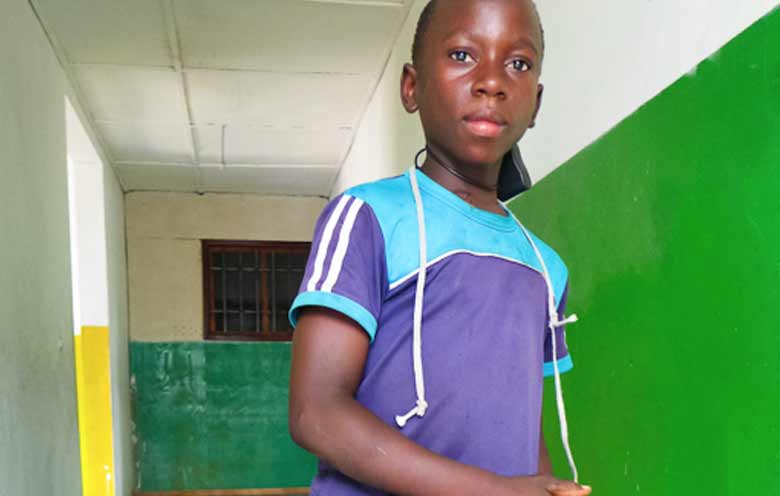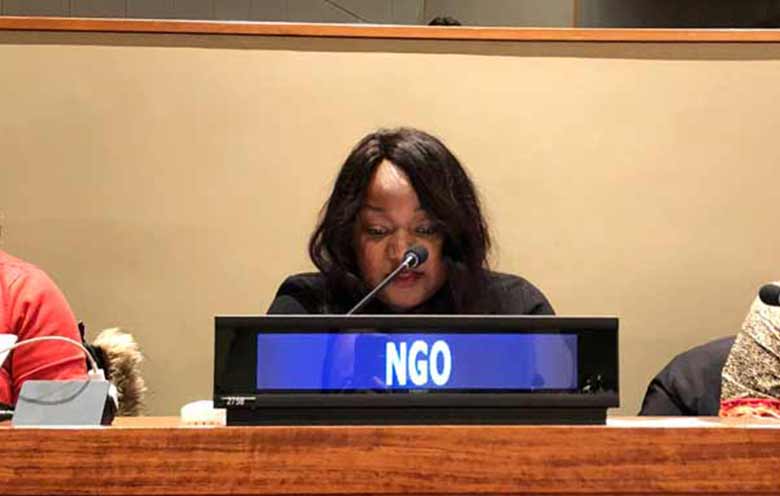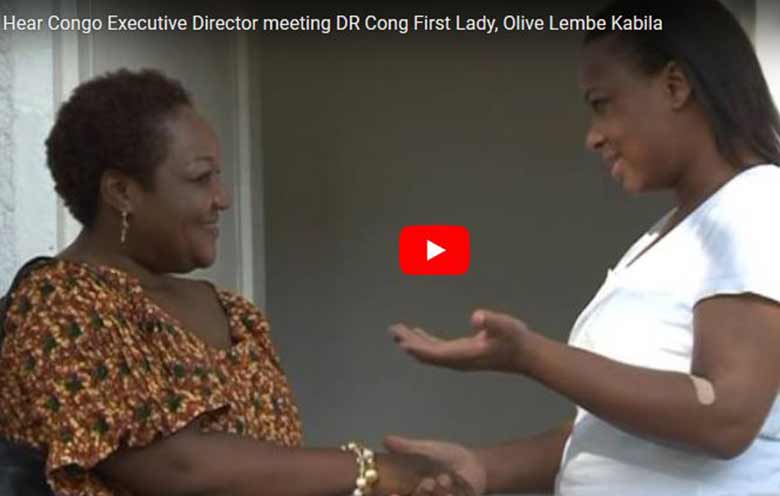
Empowering Women in the Congo
March 18, 2018
Hear Congo June 2015 Roundup
March 18, 2018In the month of May, we learned about many organizations working to make a difference in the Democratic Republic of the Congo. The World Bank is looking to have an influence on the dishearteningly high percentage of violent and discriminatory acts towards women in mining. Médecins Sans Frontières (MSF) teams are also working to gain the trust of the people of Maniema, a remote town unaccustomed to the presence of humanitarian aid. The MSF teams are offering free healthcare to pregnant women, children under 15, surgical emergencies and victims of sexual violence.
In political news, international action is needed in the mines in high-risk areas, such as the DRC, as children fall victim to harsh working conditions. Campaigners say that another voluntary scheme is not going to change anything. Next, the Democratic Republic of the Congo’s Information Minister says the country’s army has intensified its military offensive against the Allied Democratic Forces in a bid to protect life and property of unarmed citizens in parts of the country where the rebels often operate. We also learned that the government of the DRC is working with the Wildlife Conservation Society to address the international demand for ivory. The World Council of Churches is also addressing issues of the Congo, including violent conflict, electoral integrity, environmental protection and human rights, in a major conference on peace and security. Last on the political agenda, the 2016 elections are fast approaching and many are wondering if this may be the official declaration of a democratic election or a regime.
This past month, we have also noticed various economical strides within the DRC. For example, Kenya’s Equity Bank Group takes its first step outside of East Africa into the Congo and sees enormous scope for development within the Congo. If this wasn’t enough optimism for the DRC’s economy, International Monetary Fund (IMF) Deputy Managing Director David Lipton also said he was, “impressed by the country’s economic progress over the past five years.” And to top it all off, Virtual Magic Kingdom (VMK) founder Verone Mankou stated that this mobile device company would not be able to be a leader in Africa without the DRC, a large country with infinite potential. VMK, therefore, plans to invest 15 Million USD over five years to build a new factory in the country. Vodacom is also working to install portable, solar-powered mobile reception.
Lastly on our news agenda, the women of the Congo are having their voices heard! The 2015 Miss Earth Pageant will represent the Democratic Republic of the Congo and Republic of the Congo for the first time in history, providing Congolese women with the opportunity to spread awareness at an international level. Women’s voices are also being heard on the homefront, due to one DRC blogger, who was so kind to share it with our organization. Blogger Murhula Zigabe shows us firsthand glimpses of what it is like to be a woman living in the DRC. Last but not least, a new exhibit, called 53 Echoes of Zaire, opened in London this month. The exhibit depicts the history of the Democratic Republic of the Congo through paintings that illustrate the casual violence and politics of the country and provide yet another example of spreading awareness about life in the Congo.
Read more about these stories here:
What Happens To A Country When An Outbreak Of Ebola Ends?
Liberia is nearing a milestone. On May 9, its Ebola outbreak will be officially declared over, assuming no new cases between now and then. But what happens when an outbreak of Ebola ends? Dr. Peter Piot, the director of the London School of Hygiene and Tropical Medicine and the co-discoverer of Ebola, visited the Democratic Republic of Congo last year. He wanted to show his wife the region where the first known outbreak of the virus took place. They went to Yambuku, a remote village in the north where Ebola killed almost 300 people in 1976. He says Yambuku hasn’t changed much since then.
Empowering Women in the Mines of the Eastern Democratic Republic of the Congo
After two decades of civil war and ongoing conflicts, vulnerable populations throughout the Democratic Republic of Congo (DRC) have continually been pushed off their traditional agricultural land and forced to seek out their livelihood through other means such as artisanal mining. It is estimated that between 500,000 and 2 million people work informally in the artisanal and small-scale mines of the DRC. Workers in these mines suffer a variety of labor and social problems, but recently the question of human rights abuses, specifically sexual violence, has been widely reported by international media and non-governmental organizations (NGOs).
Congo: Is Democratic Change Possible?
The presidential and legislative polls scheduled for 2016 are a potential watershed for the Democratic Republic of Congo (DRC); they could be the first elections held without an incumbent protecting his position. The prospect of these elections is testing nerves on all sides of the Congolese political spectrum and has already caused deadly violence. There is an urgent need for President Joseph Kabila to commit to the two-term limit contained within the constitution and ready himself to leave power. Consensus is also needed on key electoral decisions, in particular regarding the calendar and the voter roll. This will require high-level donor and international engagement. Absent agreement and clarity on the election process, or should there be significant delays, international partners should review their support to the government.
Democratic Republic of Congo: MSF Begins Medical Activities In Bikenge, Maniema Province
Médecins Sans Frontières (MSF) has begun medical activities in Bikenge, an isolated mining town in Maniema Province, Democratic Republic of Congo. For the first few months, as they bring in supplies, the MSF teams are offering free healthcare to pregnant women, children under 15, surgical emergencies and victims of sexual violence. Once the necessary supplies have arrived, free health services will be extended to all. Since activities began on 23 March 2015, the team has carried out more than 2,150 consultations, 21 emergency surgeries and assisted at nearly 100 births.
Bringing Phone Reception To A Remote Mountain Town In The Democratic Republic of the Congo-in pictures
With roads inaccessible, transporting a specially designed mobile phone mast to the remote town of Numbi, high in the the mountains of South Kivu, was an onerous task. Photojournalist Susan Schulman joined a team from an African communications company as they carried the mast’s heavy component parts across 27km of steep, muddy terrain.
Republic of Congo Signals a Turn in Poaching Fight
WASHINGTON — Denis Sassou-Nguesso, president of the Republic of Congo, smiled broadly as he set fire to more than five tons of illegally hunted elephant tusks this week in Brazzaville, the nation’s capital. The ivory had been seized from poachers across the country, and, fueled by similarly poached timber, the bonfire Wednesday was intended as a public condemnation of a crisis that has ravaged the continent’s resources. Officials are determined to keep the pressure on traffickers, both outside the government and in it, long after the ashes cool.
Seeing the Glass Half Full in the Democratic Republic of Congo
On February 10, 2014, I was in a village outside of Gemena in the Equateur province of the Democratic Republic of Congo, with Maker Mwangu Famba, the Minister of Education, laying the first stone of Kanzi Primary School. A little more than a year later, at the Minister’s invitation, I went back to Gemena to inaugurate the new school with him. The community was extremely welcoming and had prepared a wonderful celebration for the occasion.
Wiebe’s Witness: Women of Valour in DR Congo
Several women were holding an aluminum pot they had made for sale in the local markets. I thought such things were only available from retail stores, bought from factories. Apparently not. It was 2003, shortly after the conclusion of the Second Congo War which embroiled Democratic Republic of Congo (DRC) and seven of its nine neighbouring countries. The ravages of war were apparent through destroyed communities, lost lives and a massive influx of people into Kinshasa, the capital city.
Congo-Kinshasa: Freedom of Information Under Surveillance in DRC, Months Before Local Elections
Journaliste En Danger (JED) calls upon the government of the Democratic Republic of Congo and the security and information services that report to it, to loosen the noose around the media and independent journalists that suffer under different political, economic and judicial pressures. More specifically, JED asks that Congolese authorities re-open the dozen or so media outlets currently closed within the country and to declare a moratorium on the arrest of journalists for doing their work.
DRC Government Intensifies Military Offensive Against Rebels
The Democratic Republic of Congo’s information minister says the country’s army has intensified its military offensive against the Allied Democratic Forces – rebels originally from Uganda, blamed for the recent killing of two Tanzanian soldiers. Lambert Mende said the government is determined to root out the armed group in a bid to protect life and property of unarmed citizens in parts of the country where the rebels often operate.
Is The Democratic Republic Of Congo The Next Emerging Economy?
During his last visit to the DRC in March 2015, IMF deputy managing director David Lipton said he was impressed by the country’s economic progress over the past five years. This is fair; despite a difficult security environment, the country has managed to increase its average growth rate from 2.8% in 2009 to 8.7% in 2014, recording the third fastest growth rate in the world this year.
VMK Plans to Establish a New Phone Factory in the Democratic Republic of Congo
The mobile device maker,VMK, plans to invest 15 Million USD over 5 years to build a factory in the Democratic Republic of Congo, ITnewsafrica reports. VMK founder, Verone Mankou, made the announcement this week, where he said that the new facility in Kinshasa, Congo is expected to begin operation by October. The entrepreneur, Verone Mankou, met with Thomas Luhaka, the Republic of Congo’s Prime Minister, in charge of telecommunications, in the bid to secure the government’s support and backing for the VMK facility and market entry.
Extreme Poverty Has an Image
The world around us is changing. We have now accessed a world that proclaims freedom and equity between human beings. That change has started to affect the Congolese woman’s life: her eyes are opening up, her intelligence is flourishing and the desire to become totally free and responsible of herself is intensifying. This fact for the Congolese woman to become aware of her rights, and which is of course annoying for some men, is changing everything: the female focus groups are formed here and there, the associations whose the main purpose is to defend women’s rights are multiplying and the struggle of the Congolese woman to access an equitable society is now gaining momentum.
Diverse Beauty and Tenacity of Congolese Women Embark on Radical Opportunity
The Democratic Republic of Congo and Republic of Congo will be represented in the 2015 Miss Earth Pageant for the first time in history. This will finally provide a role model that will represent the Congolese women with pride and become an influence to end the threats against females residing in the Congo. However, in order to qualify for the main event there must be a qualifying Miss Earth Congo pageant held. In order to make this possible, creators have launched an IndieGoGo campaign to raise $5,000.
How is Rape Used As a Weapon Of War?
Islamic State has institutionalised sexual violence and is using it systematically to advance its “key strategic objectives,” the UN Special Representative on Sexual Violence in Conflict, Zainab Bangura, said last week. Stories of brutality and rape are emerging on an almost daily basis, and there is no doubt that sexual violence is being used as a “tactic of terrorism” by militants intent on establishing a Caliphate in the Middle East.
Child Labour Won’t Stop With Conflict-Free Labels And Voluntary Codes
A fight is brewing in Europe over new rules for companies to report on so-called “conflict minerals”, which are commonly found in mobile phones, laptops, lightbulbs and jewelery. The minerals at stake are gold, tantalum, tungsten and tin, which are mined in conflict or high-risk areas, such as parts of Afghanistan, Colombia, the Democratic Republic of Congo (DRC), and Zimbabwe. Trade in these minerals can fund armed groups and fuel human rights abuses, in particular for children. Armed groups in the DRC are widely condemned for their use of child soldiers. Extraction of the minerals is predominantly done at small-scale mines, where forced labour, often by children, is endemic. Given the hazardous working conditions, child labour in mines is categorized as one of the worst forms of child labour.
Paintings Show the Casual Violence of Colonial Masters
In front of a white building, with a Belgian flag flying high in the yard, a black man in a striped t-shirt and shorts is being strangled with a chain. Nearby, another black man is lying face down on the ground, his trousers pulled down to reveal deep bleeding cuts in his buttocks. Above him stands another black man, smartly dressed in a colonial police officer’s uniform, whip raised above his head, ready to strike. The guard looks furtively over at a white man, in a white uniform with the Belgian flag sewn into his lapel, and a white pith helmet on his head. He smokes a pipe and has one hand in his pocket. His other hand casually directs the violence in the yard.
Congo-Kinshasa: Peace and Security in the DRC Are Focus of Conference At WCC
A major conference on peace and security in the Democratic Republic of Congo (DRC), convened by the World Council of Churches (WCC), began on Wednesday its search for solutions to the DRC’s steepest challenges.
Hailing and welcoming the “vibrant ecumenical family of the DRC,” Peter Prove, director of the Commission of the Churches on International Affairs, convened what he called the first major gathering in Geneva of churches and ecumenical partners on the DRC.
Equity Group Enters DRC Market
Group CEO James Mwangi says the proposed acquisition will cost the company Sh6billion to acquire the bank which has over 170,000 customers at the moment. However the completion of the transaction is subject to regulatory approval in Kenya and the Democratic Republic of Congo. “We have found a bank with a better quality in a more challenging environment. This is a bank that has focused on SMEs and that is what constitutes 70 percent of Equity Bank assets. So the risks is quite low,” Mwangi said during a media briefing on Tuesday.




